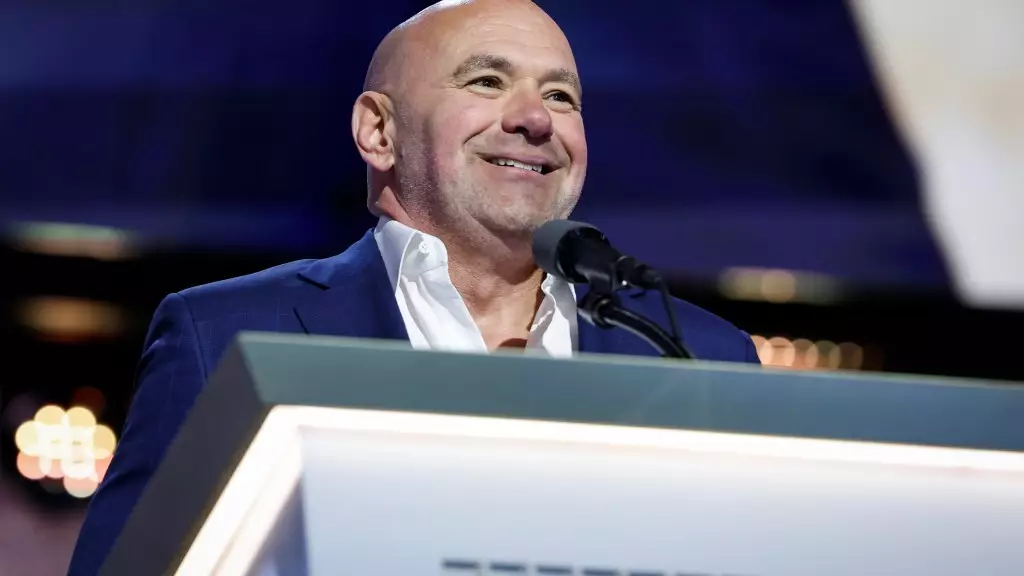The ongoing legal battle against the Ultimate Fighting Championship (UFC) has taken a significant turn as a new settlement agreement has been proposed in the antitrust lawsuit known as Le vs. Zuffa. This case has evolved over nearly a decade, highlighting concerns around fighter compensation and the monopolistic practices of the UFC. The proposed $375 million settlement, which is pending court approval, is as much about financial restitution as it is about the broader implications for fighter rights within mixed martial arts.
On Thursday, TKO, the settlement’s sponsor, announced a proposed deal that aims to resolve the Le vs. Zuffa case with an increased offer from a previously rejected settlement. The significance of this $375 million proposal lies not only in its monetary value but also in the anticipated relief it would provide to a class of over 1,000 fighters. Each participant in the settlement is expected to receive a more substantial financial return than originally proposed. Lead attorney Eric Cramer pointed out that this increase is aimed at providing immediate support to fighters, addressing concerns that prior offers were inadequate.
However, the proposed settlement still requires the approval of Judge Richard Boulware of the U.S. District Court of Nevada, who has shown hesitance in the past regarding compensation amounts deemed too low for the plaintiffs. This adds a layer of uncertainty, as Boulware previously rejected a $335 million combined settlement for multiple cases, signaling his commitment to ensuring that the damages appropriately reflect the grievances of the fighters.
At the core of the lawsuits, including the Le case, are claims that the UFC’s contractual structures create a monopsony. This term describes a market situation where a single buyer (in this case, the UFC) controls the market to the detriment of sellers (the fighters), significantly suppressing their earning potential. The plaintiffs have contended that the UFC’s practices inhibit fighters’ abilities to negotiate their contracts adequately or explore promotional opportunities outside the UFC umbrella.
These allegations are steeped in broader antitrust principles, leading to calls for justice under the Sherman Act, a key legislative framework designed to protect against anti-competitive practices in the marketplace. Such claims have the potential for substantial implications regarding how fighters are compensated and treated by promotional organizations, setting a precedent for industry standards and practices.
Importantly, the lawsuits have elevated the voices of former fighters who have banded together to seek justice. Prominent figures such as Cung Le, Jon Fitch, and Brandon Vera have stepped up as plaintiffs, not only for financial gains but also as advocates for improved working conditions and rights for their peers in the industry. This collective activism reflects a growing dissatisfaction among fighters regarding how they are treated by the UFC, highlighting longstanding grievances about pay, contract fairness, and overall treatment by the organization.
The strategy to pursue settlements rather than going to trial also underscores the risks involved in such legal battles. The plaintiffs face the daunting challenge of needing a unanimous jury verdict to win their case if it proceeds to trial—an unlikely and risky outcome given the complexities of antitrust law. As a result, the drive for a settlement reflects a desire for guaranteed compensation rather than the uncertain possibility of victory in court.
The proposed $375 million settlement for the Le case serves as a pivotal reminder of the ongoing tensions between promoters and fighters in the UFC. Whether or not Judge Boulware accepts the settlement, the very process of these lawsuits raises critical questions about the future landscape of mixed martial arts. The outcome could pave the way for enhanced fighter rights, potentially leading to reform in contract negotiations and industry practices that favor greater autonomy for athletes.
As the saga unfolds, it remains essential for both current and future fighters to recognize the broader implications of these legal battles. The Le and Johnson lawsuits not only aim for financial compensation but also challenge the very structure of power within the UFC. The outcomes may ultimately redefine the relationship between fighters and their promoters, moving toward a more equitable and just framework within the sport.

